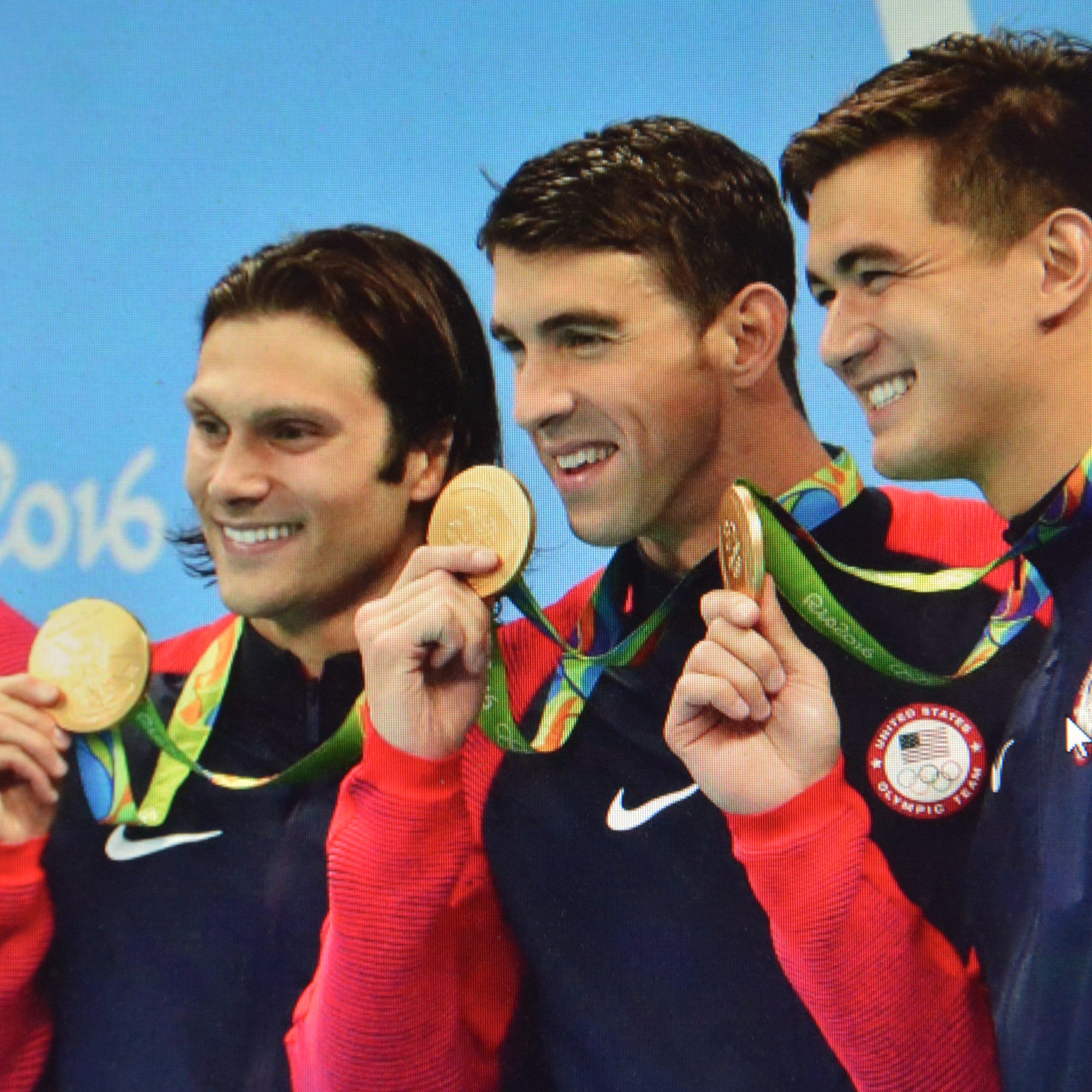Why do Olympic athletes strive to win gold? The Olympian will train tirelessly for years simply to achieve that momentary feeling of victory on the podium. Something seems off about that. And after the crowds go home and the games are over, the athlete is left alone with the question “Is that all there is?”
In fact, I have been asked that sad question more than once by a champion. When a PGA tour player wins an event, they are usually on the road somewhere, away from family and friends, and will go back to their hotel room on a Sunday night after all the press interviews are complete, have dinner by themselves and then if I talk to them on the phone, they will ask “Is that all there is?”
This is especially so when victory is obtained by amateur athletes. They secretly hope that they have finally arrived, are transformed into a winner and can relax and take a breather. But by the next morning the feeling of arrival has evaporated and so it’s back to the grind.
Athletes are not the only ones who go through this desperate search. In fact, if the British psychoanalyst Christopher Bolas is right, every adult goes through this chase scene every day of their lives. Expensive vacations are planned with the secret hope that the experience will transform us into happier human beings. Expensive luxury items like handbags, shoes and cars are purchased in the hope that they will transform us into more well-loved folks.
Bollas may be the first to describe this motivational process as “the search for the transformational object” and he suggests it derives from the careful ministrations of the mother to the infant who is crying, wet or hungry. This experience of having our infantile needs met by mom sets us up for a life where we seek to repeat this feeling over and over again.
Gamblers do it by gambling. Heroin addicts do it by taking heroin and may be why they call heroin “mother.” Whether it’s heroin, alcohol, shopping, sports or vacationing, we all seem to be seeking “the perfect feed” from mother.
The endless quest for this fleeting transforming feeling has been addressed enumerable times in the classics of literature and film. “Percival: Or the Story of the Grail” by Chretien de Troyes was the story of a boy who became a knight in an effort to find the holy grail, that magical vessel that brings eternal life. Sir Galahad, who spends his life in search of it, only ends up in tears, similar to the tears we see on the Olympians who win gold.
“In search of lost times” by Marcel Proust begins with a very lengthy introduction of his life as a child and how he loved his mother dearly. The remainder of the book describes his anguished and confused attempts to find love as an adult.
“Moby Dick” by Herman Melville is about the agonizing and in the end deadly efforts of Captain Ahab to find Moby Dick, the great white whale that glides beneath the surface. This great white whale in the ocean is a perfect metaphor not only for the unconscious but for the search for the lost mother.
And the most grotesque display of a madman seeking the transformational object is in the film “Aguire, Wrath of God” by Werner Herzog and is based upon a true story. Aguire is played by Klaus Kinski, who is on an insane quest to find the golden city El Dorado, hidden in the Amazon jungles of Peru. In the end his entire crew of Spanish conquistadors are dead as he continues to float down the river in a raft surrounded by hundreds of little monkeys. This scene reminded of the flying monkeys sent to destroy Dorothy by the Wicked Witch of the West, but in this case the monkeys win.
Bollas has hit upon one of man’s deepest compulsions. It is largely unconscious but is constantly pushing us to find this golden transformational object that will elevate us into another realm. All this effort to get to the top or to the winners circle may come down to a crazy search to once again receive a little love from mother.
It may be sad to think your life has been spent trying to get back to the cradle, but do not lose heart. Solace can be found in the Herman Hesse classic “Magister Ludi: The Glass Bead Game.” In the novel Joseph Knecht is a gifted master of the glass bead game, which is a combination of all of aesthetics and science rolled into one activity. And by the end you could see that Joseph Knecht had led a wonderful life. So go find yourself a game that you love and embrace it.
I love golf and even at 73, I can still hit a great 7 iron to a 170-yard par three and get it to 10 feet. That may not transform me into a loved golfer, a scratch player, a beloved son and it certainly will not get me to be club champ, but it still provides wonderful moments for me. And it’s the closest I can get to mother’s love since she is long gone.



